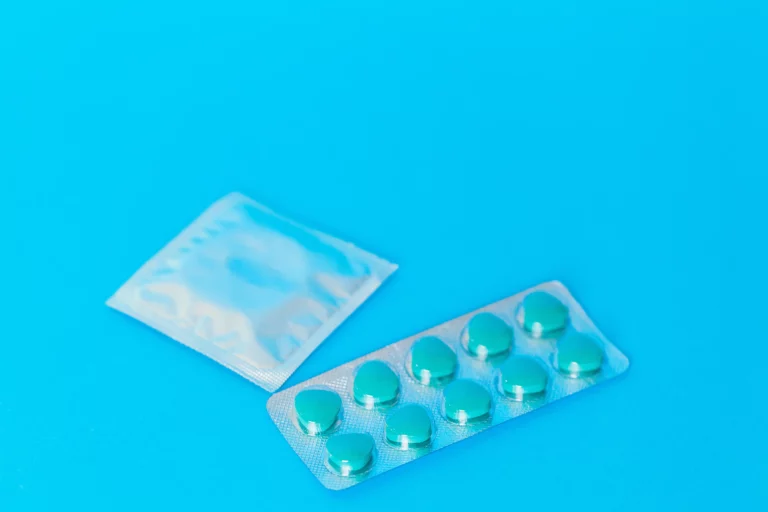What is Viagra?
Viagra is a medication developed by Pfizer that helps relax muscles and dilate blood vessels. When sildenafil, the active ingredient in Viagra, is taken, it improves local blood circulation and enables sustained erections. Since the active substance affects various organs, it should be used cautiously and strictly under a doctor’s guidance.
Viagra (sildenafil) is primarily used to treat male impotence. Viagra is one of the most well-known medications based on sildenafil and is often used as a term to describe the entire category of drugs used to treat erectile dysfunction.
When is Viagra Prescribed?
Viagra is prescribed for erectile dysfunction and pulmonary arterial hypertension (high blood pressure in the blood vessels supplying the lungs). The medication helps improve the quality of sexual life, normalizes blood circulation in the lungs, and reduces the strain on the heart. Additionally, sildenafil can enhance well-being, self-control, and reduce symptoms of depression, which positively influences relationships with a partner.
What are the Alternatives to Viagra?
In addition to Viagra, which is popular among men of various age groups, there are other medications containing sildenafil. Some of the common Viagra alternatives include:
- Revatio
- Granpidam
- Eroton
- Maxigra
- Ergos
- Vizarsin
- Conegra
- Intagra
- Silagra
- Inforce
- Synegra
- SuperViga
- Potenciale
- Vivaira
The alternatives may differ in the dosage of the active ingredient. Most sildenafil-based drugs, including Viagra, are available in tablet form. Additionally, Viagra can be found in drops and injections for men.
How Does Viagra Work?
Sildenafil inhibits an enzyme called phosphodiesterase type 5 (PDE-5), which results in the relaxation of smooth muscle cells in the cavernous (spongy) tissues of the penis. For men with erectile dysfunction, sildenafil temporarily increases blood flow to the penis when sexually stimulated. Additionally, it may shorten the refractory period (the interval between two sexual acts) by approximately 10 minutes.
Does Viagra Treat Erectile Dysfunction?
Viagra is often prescribed for the treatment of erectile dysfunction, as it increases the frequency of erections sufficient for sexual intercourse. Sildenafil also improves sexual function by enhancing pleasure and satisfaction. It is essential to note that taking sildenafil alone does not cause an erection; sexual arousal is necessary for the medication to be effective.
Erectile issues may arise due to insufficient blood flow to the penis. While sildenafil can increase blood flow, other underlying conditions (e.g., atherosclerosis, Peyronie’s disease, or diabetes) might require separate treatment.
How to Take Viagra?
Sildenafil should only be taken as prescribed by a doctor. Recommendations for Viagra use include:
- The initial dose of Viagra is 50 mg once a day on an empty stomach, one hour before intercourse (the timing can range from 30 minutes to 4 hours).
- Tablets should be swallowed whole, washed down with a glass of water or juice (except grapefruit juice).
- The dosage can range from 25 to 100 mg of sildenafil per day, based on the doctor’s guidance (e.g., after 65 years of age, the dose may be halved).
- For treating pulmonary arterial hypertension, adults take 5-20 mg three times a day.
- Intravenously, the drug is administered three times a day at a dosage of 2.5-10 mg (the pharmacological effect of injections is twice as strong as oral administration; thus, 25 ml intravenous injection is equivalent to 50 mg of Viagra tablets).
- For patients with kidney dysfunction, the daily dose should not exceed 25 mg.
The effects of sildenafil, which acts quickly and is well-tolerated, last up to four hours. When Viagra is taken with or immediately after a meal, its effect is delayed. The duration of the treatment course is determined in consultation with a urologist.
How Fast Does Viagra Work?
The onset of Viagra’s effects occurs 15 to 60 minutes after taking the medication. Approximately 35% of men experience the effects within the first quarter-hour. The action of sildenafil only occurs with prior sexual stimulation and may increase with higher doses.
How Long Does Viagra Last?
The effects of sildenafil last about four hours, corresponding to the half-life period (the time it takes for the liver to break down the active substance). The gradual decrease in sildenafil concentration in the body occurs over the next 20 hours. The speed of action may be influenced by the presence of other health conditions, such as liver or kidney diseases.
Can Viagra Not Work?
In most cases, Viagra is an effective medication that enhances men’s sexual performance. However, sildenafil is not a cure-all for all types of erectile dysfunction. Potential reasons why Viagra may not work include:
- Severe liver or kidney disease
- Cardiovascular conditions (e.g., arrhythmia, hypotension, or hypertension)
- Non-compliance with usage instructions and dosage
- Lack of adequate sexual stimulation
- Penile trauma
- High anxiety or depression
If Viagra does not produce the expected effect after several attempts, a urologist consultation is recommended. After diagnosis, the doctor may switch to other medications or treat underlying conditions that hinder achieving and maintaining an erection.
What Precautions Should Be Taken When Using Viagra?
When taking sildenafil, it’s essential to follow the dosage prescribed by a urologist considering your personal medical history. Other precautions include:
- Carefully reading the medication’s instructions
- Informing your doctor about any existing medical conditions (e.g., heart disease)
- Avoiding grapefruit or grapefruit products while taking Viagra
Additionally, it’s crucial to monitor the compatibility of Viagra with other medications. If side effects occur, discontinue use and consult your urologist.
What to Do in Case of Viagra Overdose?
In the event of a sildenafil overdose, seek immediate medical attention. Resume taking Viagra only after consulting your urologist.
Can Viagra Be Taken With Alcohol?
Alcohol consumption on the day of taking Viagra is not recommended. The most common side effects of combining alcohol with sildenafil are headaches, nausea, stomach upset, and dizziness. Many people do not experience side effects, or they occur in a mild form. Potential consequences of mixing alcohol with Viagra are listed in the medication instructions.
What Medications Should Not Be Combined With Viagra?
All drug interactions should be discussed with a doctor. Medications that should not be taken with Viagra include:
- Gastrointestinal motility stimulants
- Antihypertensives
- Pulmonary arterial hypertension treatments
- Nitrates
- Anticancer medications
- Anticoagulants
- Erectile dysfunction medications
- Antibiotics
- Antiviral, antifungal agents
- Epilepsy medications
- Antidepressants
- Peptic ulcer treatments
Before taking Viagra, provide your urologist with a list of all the medications you use. The doctor may adjust the treatment plan as needed.
What Are the Possible Side Effects of Viagra?
The harmful effects of Viagra can be attributed to improper dosage, the presence of comorbid conditions, or individual intolerance. Possible side effects include:
- Headache (occurs in approximately 16% of cases)
- Allergic reactions (skin rash, itching, hives, swelling of the face, lips, tongue, or throat)
- Hearing loss or ringing in the ears
- Rapid or irregular heartbeat
- Dizziness
- Shortness of breath
- Low blood pressure
- Vision impairment, blindness
- Sensitivity to light
- Runny or stuffy nose
- Nosebleed
- Sleep disturbances
- Nausea
- Diarrhea
- Heartburn
- Seizures
- Flushing (feeling of warmth)
- Numbness, burning, or tingling sensations in the limbs
- Muscle pain, back pain, or pain in the arms or legs
One of the potential side effects of Viagra is a prolonged or painful erection, which could lead to gangrene of the penis, possibly resulting in amputation. Seek emergency medical attention if you experience symptoms of a heart attack.
Who Should Not Take Viagra?
Sildenafil is not used to treat erectile dysfunction in individuals under 18 years of age. Other contraindications include:
- Allergic reaction to sildenafil
- Use of incompatible medications
- Kidney, liver, heart, and vascular diseases (e.g., stroke, heart attack, ischemic heart disease, arrhythmia, hypotension, or hypertension)
- Hemophilia (low blood clotting)
- Anemia
- Hereditary eye diseases (e.g., retinitis pigmentosa)
- Cancer
- Penile deformity (e.g., Peyronie’s disease)
- Peptic ulcers
Regardless of the presence or absence of contraindications, sildenafil should only be taken after consulting a doctor. Self-treatment increases the risk of side effects.
Can You Buy Viagra Without a Prescription?
Sildenafil-based medications are only dispensed to adult patients with a prescription but you can order viagra online from online pharmacy. The ban on over-the-counter sales of Viagra and its alternatives aims to prevent complications resulting from the uncontrolled use of sildenafil.
Can You Buy Viagra and Its Analogs Online?
Viagra is a prescription medication that should be purchased only at pharmacies (in-person). Presenting an original prescription is a mandatory condition for dispensing sildenafil.
Is There a Diet to Follow When Taking Viagra?
Viagra works best on an empty stomach. In addition to restrictions on alcohol, do not consume grapefruit juice or grapefruits, which may slow the action of Viagra and other male pills containing sildenafil. The absorption of the active ingredient in the gastrointestinal tract is also delayed when Viagra is taken after a heavy meal.
How to Store Erectile Dysfunction Medications?
Medications prescribed for erectile dysfunction should be stored in their original, sealed packaging at room temperature away from heat, moisture, and direct light. Keep the drugs out of reach of children and pets. Expired medications should be disposed of properly.
Can Women Take Viagra?
Viagra and other sildenafil-based medications are not recommended for use in women.






